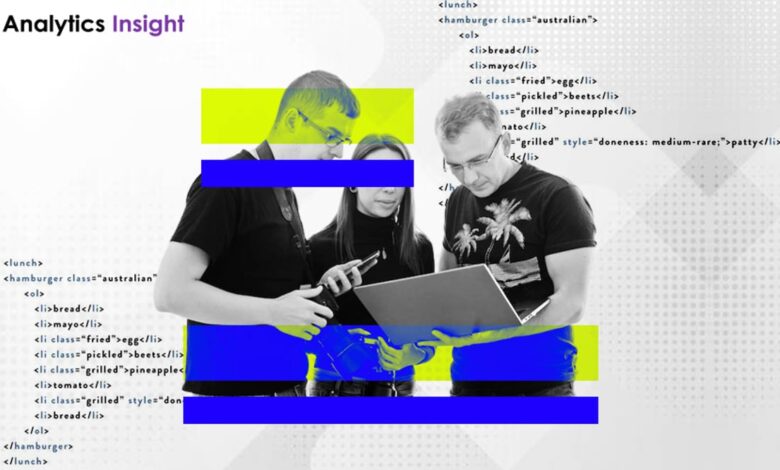Global Data Science Education Market is Projected to Reach US$440 Billion by 2031

The global data science education market is currently poised for a powerful uptrend. The latter is caused by the fact that data science has started to be a more and more significant factor in the economy of the modern world, as data is the primary basis for most economic decisions in any sphere. This position is in high demand since there is increased hiring of individuals capable of processing and analyzing data for diverse organizations in different sectors, such as health and business, among others, which means that the market for this particular service is bound to grow.
As data analytics moves into the enterprise-wide application, how it is being viewed and appreciated is becoming a critical asset for organizations pursuing this strategy. This has seen an increase in training programs and other educational tools aimed at preparing data scientists for the future. The data science education market was valued at US$130.57 billion in 2023; Analytics Insight predicts that the is expected to reach US$440.92 billion in 2031.
Market Drivers and Growth
Several factors are contributing to the expansion of the data science education market:
Technological Advancements
Currently, technological advancements have become the epicenter of development trends, with AI, ML, and big data analytics as their main facets. These technologies are rapidly affecting various industries as they help collect large amounts of data, forecast, and even handle many tasks on their own. Therefore, there is growing interest in expert talents working with these tools not only to progress further. The market for education is extending to satisfy this demand, aiming at offering more specific, targeted education to equip the upcoming generation of employees to meet the needs of the future economy.
Big Data Expansion
We are in the midst of a data explosion, where every click, swipe, and interaction generate information. There is an unprecedented amount of data as a result of the growth of social media, media content, and IoT. Due to the tremendous rise of data, firms need to have expertise in data management and analysis in order to use this data to improve customer experiences, generate insights, and optimize operations. In response, the education sector is developing comprehensive data courses that provide graduates with the abilities they need to handle and evaluate these enormous datasets efficiently.
Industry Adoption
Data science isn’t just for tech companies anymore. It’s found in every sector of the economy, from healthcare to finance to retail. All of these industries are using data science to optimize their operations, personalize their customer journeys, and make strategic decisions. As more and more companies adopt data science practices, there’s a growing need for data-literate professionals. To meet this demand, educational institutions are increasing the number of data science graduates they offer. This is driving the market for data science education.
Educational Requirements and Career Prospects
Educational Requirements
The journey to a career in data science typically begins with a foundational education. Aspiring often start with a four-year college degree in computer science, data science, or a related field. This education provides the theoretical underpinnings necessary to understand and manipulate data effectively.
However, the field of data science is rapidly evolving, and higher education is responding by offering more specialized programs. Many data scientists pursue graduate education to deepen their knowledge in areas such as , artificial intelligence, and big data analytics. Professional certifications and bootcamps have also become popular, offering practical skills and knowledge in a condensed format.
Career Prospects
The career prospects for data science professionals are exceptionally bright. According to the US Bureau of Labor Statistics, job opportunities in data science are projected to grow by 36% between 2021 and 2031. The increasing importance of data across all sectors of the economy fuels this growth.
Data scientists are in high demand for their ability to analyze and interpret complex datasets, making them invaluable in industries ranging from healthcare to finance. They are tasked with extracting actionable insights from data, which can drive strategic decision-making and innovation within organizations.
The Future of Data Science Education
As the data science field continues to grow, the global data science education market is adapting to meet the needs of this dynamic industry. Universities and educational institutions are developing curricula that not only cover the technical aspects of data science but also emphasize the importance of soft skills such as communication, critical thinking, and business acumen.
The future of data science education is likely characterized by a blend of traditional degree programs and alternative educational pathways, including online courses and micro-credentials. This flexibility will allow a broader range of individuals to enter the field, regardless of their background or location.
Conclusion
The projected value of the global data science education market by 2031 is a clear indicator of the field’s importance and the lucrative opportunities it presents. As organizations continue to seek out data-driven insights for strategic decision-making, the need for skilled data scientists is at an all-time high. Educational institutions are responding to this demand by developing specialized programs, and the market is set to grow exponentially, shaping the workforce of the future and fostering a data-literate society capable of leveraging the full potential of big data. The future of data science education is not just promising; it is essential for the advancement of industries and economies worldwide.
The forecasted figure for the world data science education market by 2031 has shown that the sector is significant and has excellent chances, which means it’s competitive. The extent to which organizations are in search of findings based on statistical information for making strategies is rising; hence, there is a high demand for qualified statisticians. To address this shortage in supply, some colleges now have programs explicitly tailored towards this kind of science while at the same time creating huge prospects within every sector, leading them, in turn, towards the shaping of a profession tentatively referred to as the gig economy based on zero commission deals made by everyone through various apps.



